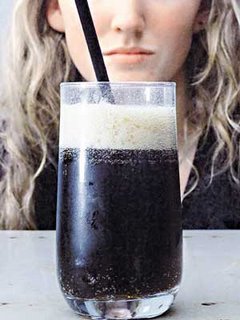Australia - they don't drink water.
 It isn't just the acid-sugar mix in drinks that poses a dental danger; soft drinks are being drunk instead of tap water and milk, Lewis says, potentially compromising children's intake of protective nutrients such as calcium and fluoride.
It isn't just the acid-sugar mix in drinks that poses a dental danger; soft drinks are being drunk instead of tap water and milk, Lewis says, potentially compromising children's intake of protective nutrients such as calcium and fluoride.This change in children's exposure to risk and protective factors may account for some of the recent rise in dental caries observed in children, says Professor John Spencer, director of the Australian Research Centre for Population Oral Health at the University of Adelaide.
Since the mid-1990s, when children had the best levels of oral health, to 2000 there has been a 20 per cent increase in deciduous "baby" teeth with decay among primary school children, according to Australia's Child Dental Health Survey. Spencer says the survey, which collects data from about 80,000 children who attend school dental clinics Australia-wide, also shows an increase in decay in children's permanent teeth.
0 Comments:
Post a Comment
<< Home